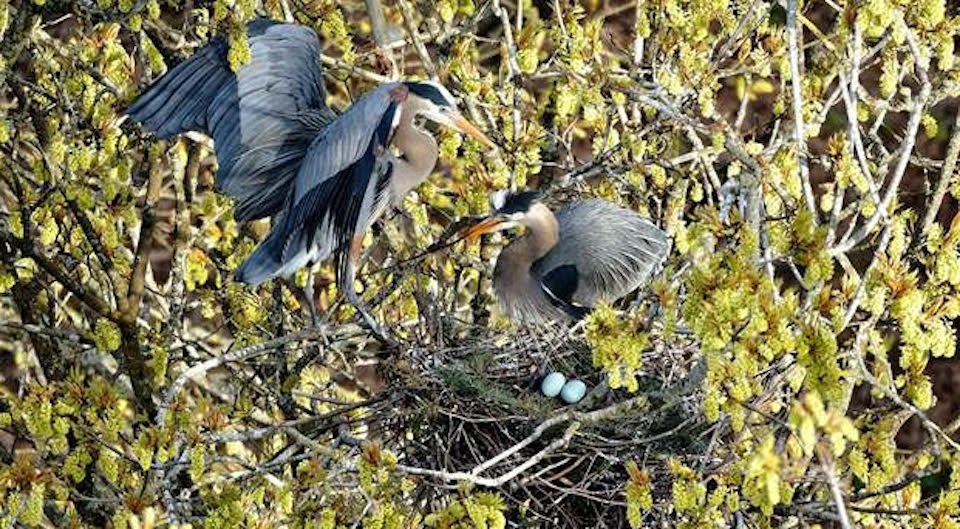Spring has officially sprung in the city and one of its best-loved live streams is back for the public's viewing pleasure.
The Stanley Park Heron Cam offers a 24/7 window into this remarkable species as they build their nests, find mates, lay their eggs, and rear their adorable hatchlings.
Viewers can access a birds-eye view of the 40 nests and even take control of the camera by zooming in on multiple nests, using different angles. Users can view the colony from March until the end of the summer breeding season.
There are 64 Pacific Blue Herons in the colony that nests above Park Lane, which surrounds the tennis courts. Last year, the colony raised roughly 90 new chicks, "overcoming persistent eagle raids and a late nesting season, due to more severe winter weather," according to the Vancouver Board of Parks and Recreation.
"Throughout these challenges, this heron colony has proven to be above all else, resilient. With 80 per cent of British Columbia’s great blue heron population found in and around the Fraser River, the productivity of this heronry has signification implications for the viability of the whole subspecies."
The herons were first documented in Stanley Park in 1921 and the colon changed its nesting location several times before settling in its current location in 2001.
Listed as a "species of concern," the Great Blue Heron population has experienced a steady decline since the 1890s due to "nesting failure, eagle attacks, human disturbance, and habitat loss." Unlike other heron species, they do not migrate.
There is around 4,000 to 5,000 nesting adult Great Blue Herons in Canada, with the majority living around the Salish Sea.
To ensure herons are given space to nest and raise their young peacefully, between mid-March to mid-July, visitors should:
- Observe herons from outside of fenced areas
- Avoid making loud noises or playing amplified music within 30m of the colony
- Keep dogs on-leash
- Refrain from flying drones. Drones are not allowed in parks without a permit, and should strictly not be flown around nesting birds
You can access the Heron Cam online.



